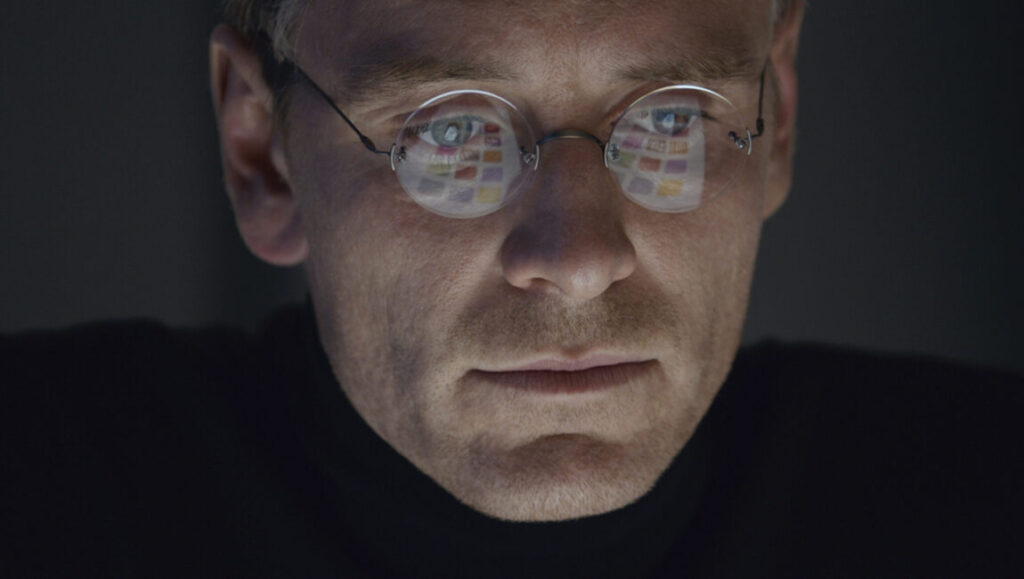It’s hard to tell if Steve Jobs is better or worse for its general avoidance of “how we live now” handwringing. Even The Social Network, to which this is certainly meant as some sort of foll0w-up given its Aaron Sorkin fact-based tech-biography screenplay, concerned itself with our market-driven culture, the allure and pitfalls of becoming a capitalist hero, and the ways in which technology has disrupted human relationships. Steve Jobs is barely even about legendary iconoclast Steve Jobs. Mostly it’s about how geniuses are right to be assholes in the pursuit of their genius, especially when that genius is intrinsic and self-evident. Oh, and absentee fathers.
Broken into three distinct segments, in 1984, 1988, and 1998, each documenting Jobs (played by Michael Fassbender, but you knew that by now) behind the scenes at a crucial product launch event, the film constantly confronts its subject with a) the daughter he cruelly claims isn’t his, b) the colleague/subordinate whose contributions he also refuses to acknowledge, and c) the mentor/father figure he’s driven to second-guess. All of these people, Jobs included, would be in less emotional turmoil if they would just get out of the way and execute his plans, and at the end this mercurial, difficult man turns out to have a heart after all. So the portrait here is not a particularly illuminating one, at least not of its real-life protagonist. In a way, Steve Jobs feels as much like an apology for the writer’s own perceived failings, both as a human and as an observer of humanity, and perhaps that is its most interesting element. Curiously, Sorkin has yet to entertain the notion that brilliant men need not be assholes in order to be brilliant, but maybe that’s neither here nor there.
may have more to say about its primary author than its subject
Aside from a couple of disastrous final scenes, Steve Jobs largely avoids the standard biopic cliches, thanks in part to its trifurcated structure. And director Danny Boyle mostly stays out of the way of his fantastic cast, which in addition to Fassbender, includes Seth Rogen, Jeff Daniels, Kate Winslet, Katherine Waterston, and Michael Stuhlbarg, all rattling off pages and pages and pages of Sorkin’s unsurprisingly electric dialogue. There are occasional formal flourishes deployed as connective tissue between the three segments (which are also subtly delineated by being shot in 16mm, 35mm, and HD video respectively), and Boyle stages the bulk of the material with his camera hovering through large backstage areas and cavernous sets in long takes and televisual walk-and-talks popularized by shows in which Sorkin also had a heavy hand, which just further reinforces the idea that Steve Jobs may have more to say about its primary author than its subject.

